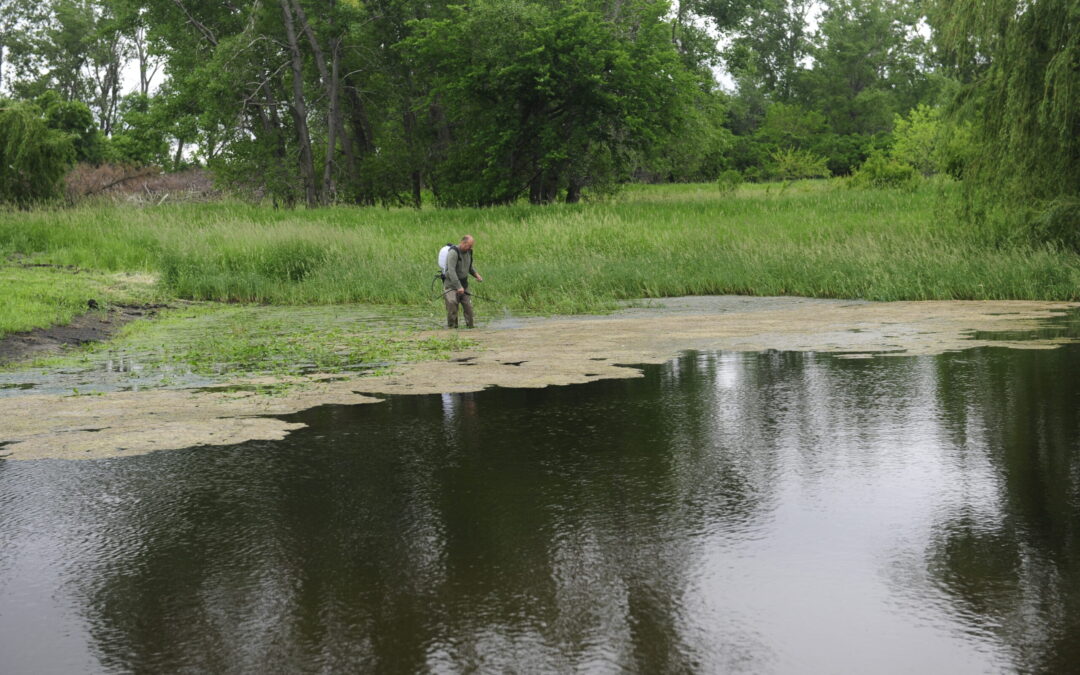Pond sludge is common in autumn and winter, usually harmless in small amounts. Over time, it can form an anaerobic crust, which traps toxic hydrogen sulfide. This crust can break and release a foul odor like rotten eggs. That’s why preventing pond sludge is essential. So, how can you prevent the formation of pond sludge? In this blog post, Healthy Ponds goes over five expert tips for preventing pond sludge from occurring.
1 Don’t Overstock the Pond
Excessive fish population is a prevalent factor leading to sludge buildup in ponds. Fish generate substantial organic waste, primarily feces, which settles at the pond’s bottom and initiates decomposition. This waste not only contributes to sludge accumulation but also releases nutrients into the water, promoting spring algae and green water. To prevent this, it’s essential to maintain an appropriate fish-to-pond size ratio.
2 Filter the Pond
The most straightforward method to avert pond sludge is by establishing and maintaining a reliable pump and filtration system. This system efficiently extracts a substantial quantity of organic waste from the pond, gathering it in the filters before it undergoes decomposition, turning it into sludge. Regular maintenance involves weekly cleaning of the filter media, eliminating any debris or sludge using a hose. Additionally, incorporating a beneficial bacteria product into your filter can aid in the biological breakdown of organic waste.
3 Clean Out Leaves, Sticks, and Other Organic Matter
During autumn, fallen leaves and twigs can rapidly become the primary culprits behind pond sludge. These deceased leaves start decomposing within days, significantly contributing to sludge buildup. Depending on the tree species they originate from, these leaves might contain tannins that can seep into your water, causing it to turn brown. To prevent leaves from entering your pond, consider installing a fine net during the autumn and winter seasons to trap any debris. If you prefer an unobstructed view of your fish and don’t want a net affecting it, we suggest using a net to collect surface debris daily.
4 Control Fish Feeding
Apart from overstocking, the timing and type of fish feeding can also impact pond sludge levels. In the colder months, fish eat less as their energy needs decrease. If you maintain the same feeding schedule and food quantity during autumn and winter, they may not consume it all. Consequently, uneaten food can decompose, adding to the sludge levels.
5. Aerate the Pond
Boosting the dissolved oxygen content in pond water enhances the efficiency of beneficial bacteria communities in breaking down sludge. In addition to sludge prevention, this is also beneficial for fish, especially if sludge levels escalate and pose a greater risk. To increase aeration and oxygen levels, consider incorporating an oxygenating stone or fountain into the pond.
Contact Us for More Tips and Products for Pond Sludge Prevention and Removal!
Healthy Ponds can assist you in maintaining your pond and preventing pond sludge from building up. Our team can provide you with expert advice and guide you toward the correct Healthy Ponds products to utilize to prevent or remove pond sludge. Reach out today!


